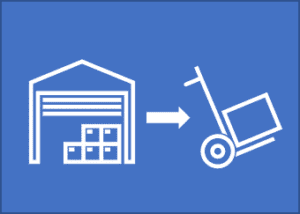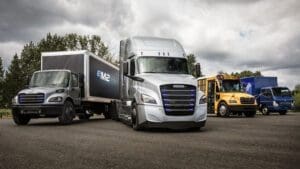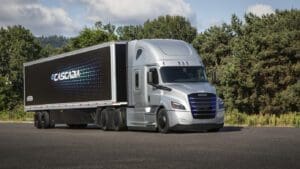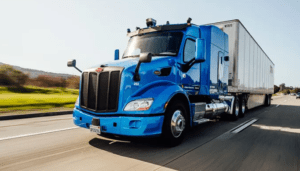 Ever since I was a kid, cartoons showed me that dogs like to bite the mail carrier. I always assumed this was just a joke. And for the most part, it is just that – an ongoing joke. But, more than 5,300 Postal Service employees were attacked by dogs while delivering mail last year. Aggressive dog behavior is a common safety concern USPS employees face. To keep its workers safe, the organization is providing important information on how dog owners can be good stewards for safe mail delivery as part of its annual National Dog Bite Awareness Week public service campaign. The campaign runs Sunday, June 4, through Saturday, June 10. This year’s theme is “Even good dogs have bad days.” The USPS is hoping that people will spread the news of the campaign with the hashtag #dogbiteawareness. “When letter carriers deliver mail in our communities, dogs that are not secured or leashed can become a nemesis and unpredictable and attack,” said Leeann Theriault, USPS employee safety and health awareness manager. “Help us deliver your mail safely by keeping your dog secure and out of the way before your carrier arrives.” And now on to this week’s logistics news.
Ever since I was a kid, cartoons showed me that dogs like to bite the mail carrier. I always assumed this was just a joke. And for the most part, it is just that – an ongoing joke. But, more than 5,300 Postal Service employees were attacked by dogs while delivering mail last year. Aggressive dog behavior is a common safety concern USPS employees face. To keep its workers safe, the organization is providing important information on how dog owners can be good stewards for safe mail delivery as part of its annual National Dog Bite Awareness Week public service campaign. The campaign runs Sunday, June 4, through Saturday, June 10. This year’s theme is “Even good dogs have bad days.” The USPS is hoping that people will spread the news of the campaign with the hashtag #dogbiteawareness. “When letter carriers deliver mail in our communities, dogs that are not secured or leashed can become a nemesis and unpredictable and attack,” said Leeann Theriault, USPS employee safety and health awareness manager. “Help us deliver your mail safely by keeping your dog secure and out of the way before your carrier arrives.” And now on to this week’s logistics news.
- US manufacturers seek China alternatives
- Amazon doubles storage capacity in Saudi Arabia
- Walmart offers domestic shipping labels to sellers
- Companies are reining in their alternative logistics ambitions
- California’s electric-truck drive draws charging station start-ups
- Toyota, Daimler Truck, Hino, Mitsubishi Fuso join forces
- Cargo theft and fraud are on the rise
- Applied Intuition to buy autonomous trucking SPAC Embark for $71M
 Fears of military conflict and increasing security worries have some U.S. manufacturers re-evaluating their reliance on China. Executives are plotting alternate supply chains or devising products that can be made elsewhere should China’s hundreds of thousands of factories become inaccessible. That prospect became more conceivable, they said, after the 2022 invasion of Ukraine prompted companies to sever ties with Russia, sometimes taking huge write-downs. U.S. companies were further rattled after Chinese authorities recently questioned workers at Boston-based consulting firm Bain & Co. and raided the Beijing offices of Mintz Group, a due-diligence firm based in New York. The government has also barred major Chinese firms from buying products made by U.S. semiconductor company Micron Technology, citing national-security risks.
Fears of military conflict and increasing security worries have some U.S. manufacturers re-evaluating their reliance on China. Executives are plotting alternate supply chains or devising products that can be made elsewhere should China’s hundreds of thousands of factories become inaccessible. That prospect became more conceivable, they said, after the 2022 invasion of Ukraine prompted companies to sever ties with Russia, sometimes taking huge write-downs. U.S. companies were further rattled after Chinese authorities recently questioned workers at Boston-based consulting firm Bain & Co. and raided the Beijing offices of Mintz Group, a due-diligence firm based in New York. The government has also barred major Chinese firms from buying products made by U.S. semiconductor company Micron Technology, citing national-security risks.
 Amazon has launched a new fulfillment center in Riyadh doubling its total storage capacity in Saudi Arabia and increasing selling opportunities for small and medium-sized businesses. The facility, which spans 390,000 sq. feet across five floors, with 2.7 million cubic feet capacity can store more than 9 million products, according to a statement. The opening of the fulfillment center in the Saudi capital will provide SMBs a platform to showcase their products and expand their reach, a top official of the e-commerce giant said. In an interview with Arab News, Prashant Saran, director of operations for Amazon in the Middle East and North Africa region, said that the new facility will provide sellers with more storage options and help them expand their online businesses to new markets.
Amazon has launched a new fulfillment center in Riyadh doubling its total storage capacity in Saudi Arabia and increasing selling opportunities for small and medium-sized businesses. The facility, which spans 390,000 sq. feet across five floors, with 2.7 million cubic feet capacity can store more than 9 million products, according to a statement. The opening of the fulfillment center in the Saudi capital will provide SMBs a platform to showcase their products and expand their reach, a top official of the e-commerce giant said. In an interview with Arab News, Prashant Saran, director of operations for Amazon in the Middle East and North Africa region, said that the new facility will provide sellers with more storage options and help them expand their online businesses to new markets.
 Walmart added new functionality that lets sellers purchase shipping labels for domestic orders on its marketplace. Ship with Walmart (SWW) was previously available only for cross-border orders. The feature is standard on other major marketplaces, offering sellers reduced shipping rates and integrating with their platforms. Walmart SWW currently offers FedEx and USPS shipping. Sellers can only purchase a shipping label through Walmart for orders that are in an unshipped status, it noted. In Tuesday’s announcement, Walmart told sellers, “Now, it’s easier than ever to purchase discounted FedEx and USPS shipping labels, estimate shipping rates, and compare services and carriers—all directly within Seller Center.”
Walmart added new functionality that lets sellers purchase shipping labels for domestic orders on its marketplace. Ship with Walmart (SWW) was previously available only for cross-border orders. The feature is standard on other major marketplaces, offering sellers reduced shipping rates and integrating with their platforms. Walmart SWW currently offers FedEx and USPS shipping. Sellers can only purchase a shipping label through Walmart for orders that are in an unshipped status, it noted. In Tuesday’s announcement, Walmart told sellers, “Now, it’s easier than ever to purchase discounted FedEx and USPS shipping labels, estimate shipping rates, and compare services and carriers—all directly within Seller Center.”
 Retailers of virtually every size raced to bulk up online delivery offerings at the onset of the pandemic in early 2020, as consumers shifted to shopping online for everything from home décor to cleaning supplies. However, many of these companies are now reining in their logistics ambitions. E-commerce service provider Shopify, apparel retailer American Eagle Outfitters and meal-kit delivery company Blue Apron are among the companies that set expansive strategies in hopes of gaining greater scale, with some looking to establish distribution channels to compete with the sprawling logistics network of Amazon.com. As growth in online commerce retreats to pre-pandemic levels, several companies are signaling that delivering goods to homes on a regular, reliable basis has proven more challenging than expected. As a result, they are abandoning these plans on going back to relying on partnerships for home delivery.
Retailers of virtually every size raced to bulk up online delivery offerings at the onset of the pandemic in early 2020, as consumers shifted to shopping online for everything from home décor to cleaning supplies. However, many of these companies are now reining in their logistics ambitions. E-commerce service provider Shopify, apparel retailer American Eagle Outfitters and meal-kit delivery company Blue Apron are among the companies that set expansive strategies in hopes of gaining greater scale, with some looking to establish distribution channels to compete with the sprawling logistics network of Amazon.com. As growth in online commerce retreats to pre-pandemic levels, several companies are signaling that delivering goods to homes on a regular, reliable basis has proven more challenging than expected. As a result, they are abandoning these plans on going back to relying on partnerships for home delivery.
 Electric vehicle-charging startups are racing to cash in on California’s drive to electrify truck fleets in the state. A clutch of companies are spending hundreds of millions of dollars to lease or buy land, install charging infrastructure, and in some cases, even order dozens of heavy-duty electric trucks to jump-start the nascent industry. The competition is heating up because of recent California regulations that force some trucking companies and owner-operators to begin buying electric vehicles starting Jan. 1, 2024. California, which depends on trucks to move billions of dollars worth of consumer goods, manufacturing parts and agricultural products each year, aims to replace more than 30,000 heavily-polluting trucks with clean-energy vehicles by 2035. The state’s rules targeting truck emissions are the toughest in the country calling for electric fleets, and they mean California will need thousands of charging stations to support the vehicles. Experts say such sites will have to be clustered close to the state’s big ports and warehousing hubs.
Electric vehicle-charging startups are racing to cash in on California’s drive to electrify truck fleets in the state. A clutch of companies are spending hundreds of millions of dollars to lease or buy land, install charging infrastructure, and in some cases, even order dozens of heavy-duty electric trucks to jump-start the nascent industry. The competition is heating up because of recent California regulations that force some trucking companies and owner-operators to begin buying electric vehicles starting Jan. 1, 2024. California, which depends on trucks to move billions of dollars worth of consumer goods, manufacturing parts and agricultural products each year, aims to replace more than 30,000 heavily-polluting trucks with clean-energy vehicles by 2035. The state’s rules targeting truck emissions are the toughest in the country calling for electric fleets, and they mean California will need thousands of charging stations to support the vehicles. Experts say such sites will have to be clustered close to the state’s big ports and warehousing hubs.
 German truck maker Daimler, Japan’s top automaker Toyota and two other automakers said they will work together on new technologies, including using hydrogen fuel, to help fight climate change. The companies said Mitsubishi Fuso Truck and Bus Corp., whose top stakeholder is Daimler Truck, and Hino Motors, the truck maker in the Toyota group, will merge. Daimler Truck and Toyota Motor Corp. will equally invest in the holding company of the Mitsubishi-Hino merger, they said without giving a dollar amount for the deal. The companies plan to cooperate in reducing carbon emissions and developing other technologies such as autonomous driving, net-connected services and electric vehicles.
German truck maker Daimler, Japan’s top automaker Toyota and two other automakers said they will work together on new technologies, including using hydrogen fuel, to help fight climate change. The companies said Mitsubishi Fuso Truck and Bus Corp., whose top stakeholder is Daimler Truck, and Hino Motors, the truck maker in the Toyota group, will merge. Daimler Truck and Toyota Motor Corp. will equally invest in the holding company of the Mitsubishi-Hino merger, they said without giving a dollar amount for the deal. The companies plan to cooperate in reducing carbon emissions and developing other technologies such as autonomous driving, net-connected services and electric vehicles.
 According to the cargo theft prevention firm CargoNet, reports of theft, fraud, and other kinds of criminal activity in the supply chain rose 41 percent in the first 20 weeks of 2023 compared to last year, reaching 900 incidents. New Jersey-based CargoNet says it helps prevent cargo theft and improve recovery rates through secure and controlled information sharing among theft victims, their business partners, and law enforcement. One type of scam that has become particularly popular with criminals is known as shipment misdirection. Since November 2022, CargoNet has been tracking a sharp rise in that highly technical scheme across the United States. And fictitious pickup and fraud complaints are 675 percent higher in the first 20 weeks of 2023 compared to the first 20 weeks of 2022. Most of the misdirection fraud has taken place in California, but some shipments have shipped from other states and have been misdirected to California.
According to the cargo theft prevention firm CargoNet, reports of theft, fraud, and other kinds of criminal activity in the supply chain rose 41 percent in the first 20 weeks of 2023 compared to last year, reaching 900 incidents. New Jersey-based CargoNet says it helps prevent cargo theft and improve recovery rates through secure and controlled information sharing among theft victims, their business partners, and law enforcement. One type of scam that has become particularly popular with criminals is known as shipment misdirection. Since November 2022, CargoNet has been tracking a sharp rise in that highly technical scheme across the United States. And fictitious pickup and fraud complaints are 675 percent higher in the first 20 weeks of 2023 compared to the first 20 weeks of 2022. Most of the misdirection fraud has taken place in California, but some shipments have shipped from other states and have been misdirected to California.
 There is no doubt that autonomous semi-trucks will change the face of logistics. Embark Trucks was founded in 2016 by CEO Alex Rodrigues and CTO Brandon Moak, and was one of the buzzier startups on the market. By 2018, Embark had raised about $47 million in funding and was valued at $5.2 billion. The company went public in 2021 but failed to develop and commercialize its autonomous vehicle technology. In March of 2023, the company announced that it would lay off 70 percent of its workforce, and the remaining 30 percent were tasked with the job of winding down operations. Last week, it was announced that Embark Trucks is being acquired by Applied Intuition, a simulation and software provider for autonomous vehicle development. The all-cash transaction has an equity value of about $71 million, according to the companies.
There is no doubt that autonomous semi-trucks will change the face of logistics. Embark Trucks was founded in 2016 by CEO Alex Rodrigues and CTO Brandon Moak, and was one of the buzzier startups on the market. By 2018, Embark had raised about $47 million in funding and was valued at $5.2 billion. The company went public in 2021 but failed to develop and commercialize its autonomous vehicle technology. In March of 2023, the company announced that it would lay off 70 percent of its workforce, and the remaining 30 percent were tasked with the job of winding down operations. Last week, it was announced that Embark Trucks is being acquired by Applied Intuition, a simulation and software provider for autonomous vehicle development. The all-cash transaction has an equity value of about $71 million, according to the companies.
That’s all for this week. Enjoy the weekend and the song of the week, I Wanna be your Dog by the Stooges.
















